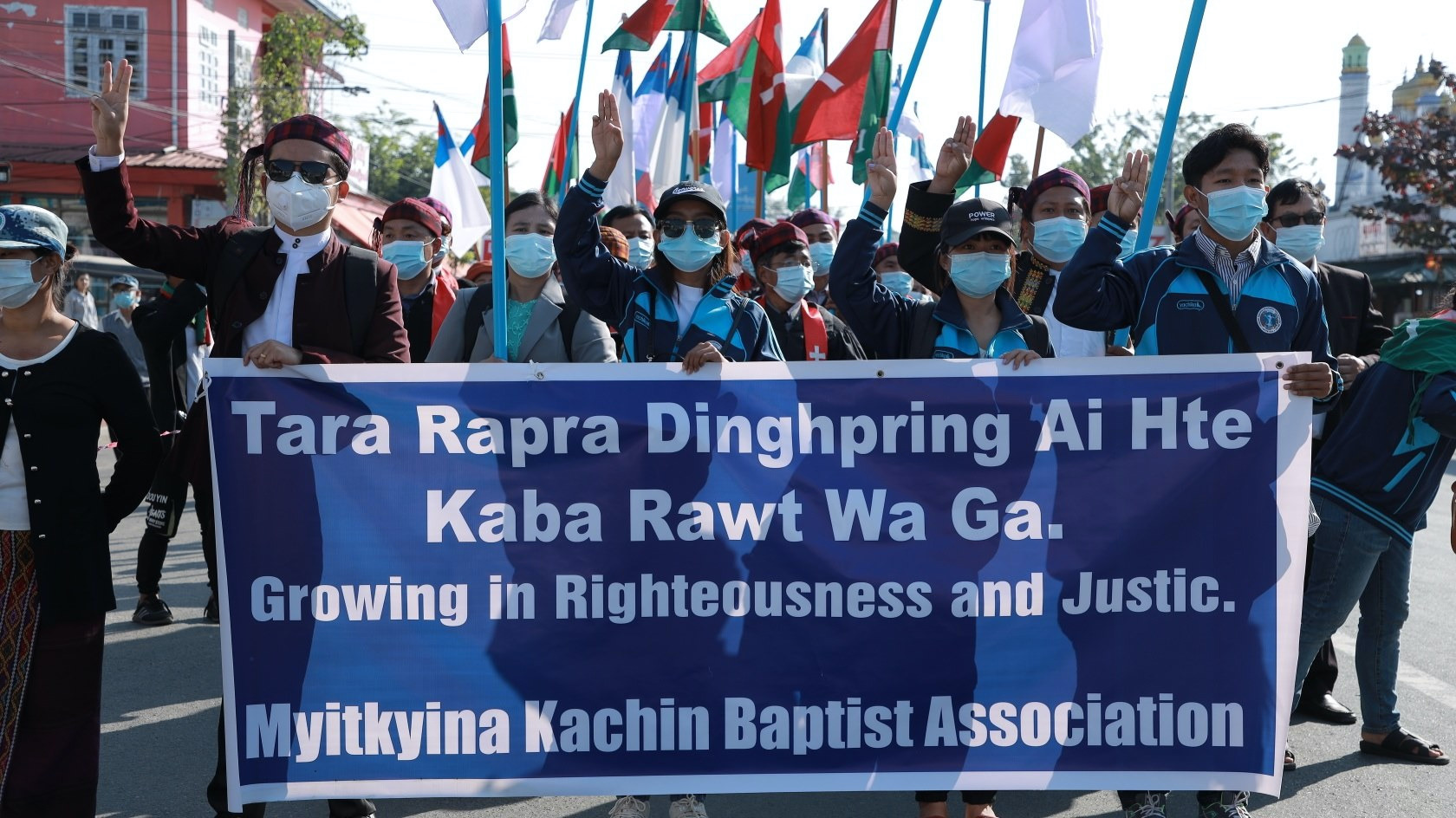|
|
|
Two weeks after the assumption of power by the military State Administrative Council, protests are continuing in all parts of the country. Nowhere is the need for peace and democracy more deeply felt than in the ethnic states and regions. But, as Lahpai Seng Raw warns in this commentary, lessons from the past must be learned if long-essential change is to be achieved. A political system is required that guarantees the rights of all peoples in the building of a democratic Union.
See the complete list of all the Myanmar commentaries.
|
|
|
|
 Public demonstration in Myitkyina, Kachin State / Photo credit KBC Public demonstration in Myitkyina, Kachin State / Photo credit KBC
|
|
|
|
|
|
|
| |
Will there ever be light at the end of the tunnel?
A Myanmar Commentary by Lahpai Seng Raw
18 February 2021
|
The tunnel that we have had to pass through is a very long one… 70 plus years, and there is still no sign of light that we are nearing the end. The leaders have staunchly blocked the exit. No ordinary civilian can pass through, and those inside the tunnel only get to see glimpses of light through tiny holes now and then. By the time the leaders of our country have agreed and worked out their differences, it will be too late for those of us who have been suffocating inside the darkness for far too long.
This begs the question: what should we do to get out of that tunnel for better tomorrows?
Covid-19 enabled me to go through many of my notes from way back and one dated 24 February 1990 in Kamphaeng Phet Province, Thailand, strikes me in particular. I was travelling with Duwa La Wom, a prominent Kachin who had been Burmese ambassador to Israel and the Philippines in the 80s. Subsequently, he was one of three peace intermediaries in the 1994 ceasefire agreement between the State Law and Order Restoration Council and Kachin Independence Organisation. On our way to Manerplaw in Karen State, we talked about the upcoming general election in May that the military junta had promised. Today his words have special resonance:
"It is very likely that the NLD could win but by a narrow margin. The army will be reluctant to turn over power to the winners unless they are willing to share power with the army. Since there is no new constitution upon which to base its authority, the new government formed after the election will be an interim government until a constituent assembly is convoked."
La Wom was spot on in his prophecy of what would follow after the elections. The army did not hand over government power, and his remarks are still valid to date. However both he and many of us underestimated the overwhelming support that Daw Aung San Suu Kyi and the National League for Democracy would continue to win in the following decades among the general public. The party won resounding victories in each of the elections in 1990, 2012 (by-elections), 2015 and, most recently, in November 2020. But, throughout these long years, there was one objective that everyone agreed upon: the need for a constitution that all peoples and parties could accept. The question was how this might come about.
|
|
|
|
|
|
| |
|
|
|